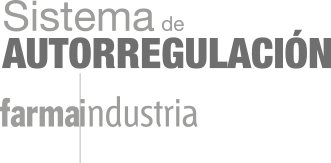Title II - RULES OF PROCEDURE FOR THE CONTROL BODIES
CHAPTER IV - Procedures
35. PROCEDURE FOR COMMUNICATING SERVICES PROVIDED BY HEALTHCARE PROFESSIONALS OR HEALTHCARE ORGANISATIONS
The provisions of this article only result of application to those services regulated in article 16 of the Code the communication of which is obligatory.
35.1. Conditions
Prior to initiation, companies must report on the implementation, funding or sponsorship of projects that require contracting services provided by Healthcare Professionals or Healthcare Organisations, in accordance with article 16.2 of the Code.
The communication unit for these services will be the project. For the purposes of this communication, each project will include all of the services that the company plans to contract with Healthcare Professionals or Healthcare Organisations, within the timeframe of one year and throughout Spain, that share the same approach, objectives and methods.
If a communicated project includes various meetings, these meetings do not need to be communicated again by the pharmaceutical company under the procedure established in article 33 ("principle of non-duplication"). In any case, such meetings must comply with the terms of article 11 and its supplementary rules.
This communication of these projects will be obligatory when all of the following circumstances occur:
- the sponsorship or funding provided by the company represents the majority of the financial resources;
- the project involves the remunerated participation of at least 10 Healthcare Professionals practicing in Spain;
- the project does not consist of a clinical trial or study stipulated in sections 1 or 2 of article 14 of the Code.
35.2. Deadlines
The communication shall be addressed to the Code of Practice Surveillance Unit at least ten working days before its beginning.
35.3. Information to be Provided
The communication must contain at least the following data:
a) Pharmaceutical company reporting the project.
b) Title of the project.
c) Objective of the project.
d) Methodology being applied.
e) Planned times of execution.
f) Approximate number of Healthcare Professionals participating in the project.
g) Specialty to which the Healthcare Professionals belong.
h) Geographical scope of the project (international, national, regional, local).
i) Planned remuneration of the participating Healthcare Professionals.
j) Other individuals or legal entities involved in the execution or sponsorship of the project (scientific societies, healthcare institutions, third-party service providers, etc.).
Together with the above data, the communicating pharmaceutical company must provide a report with the following points to the Code of Practice Surveillance Unit:
i) justification for the need to contract these types of services;
ii) criteria used to select the contracted Healthcare Professionals, which must be consistent with the objectives of the project;
iii) criteria used to calculate the remuneration for the provision of services;
iv) documentation for ensuring effective provision of the service (project deliverables);
v) copy of the contract or signed contracts (anonymised if necessary) or the contract template, if available.
A procedure will be put in place to present these communications through electronic media that ensure the agility of the process, its efficacy and the confidentiality of data.
The Code of Practice Surveillance Unit must confirm receipt of the communications to the respective pharmaceutical companies, at the same time it may also request additional information or corrective measures for compliance with the Code, if necessary. In the latter case, if the pharmaceutical company executes the project without meeting the corrective measures, the Unit may initiate the corresponding complaint procedure.
35.4. Person Responsible
Each pharmaceutical company will designate through their legal representative one or two persons responsible for communicating services provided by Healthcare Professionals or Healthcare Organisations who will be the intermediary in these matters and who shall be assigned personal passwords for communicating services via the Internet/electronic mail. This will also be the person who will contact the Code of Practice Surveillance Unit for any clarifications on the reported projects. The Code of Practice Surveillance Unit will maintain a database in which all reports received will be collected. This will be kept strictly confidential. This database must comply with current regulations on the protection of personal data.
